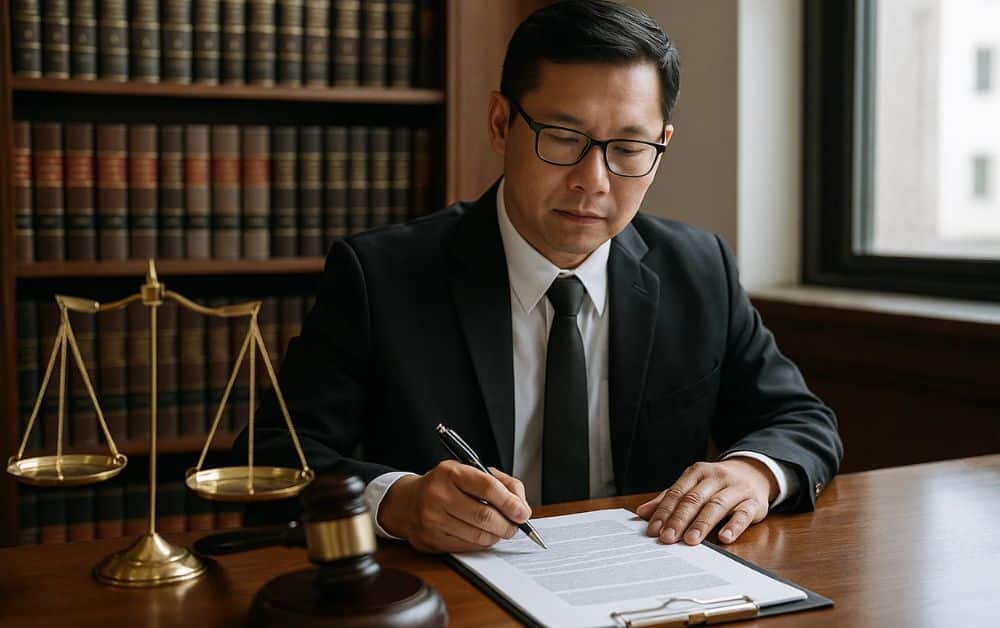+65 63232320
9am to 6pm
What Do Litigation Lawyers Do? When Would I Need One?

Legal disputes do occur, whether they involve business disagreements, personal conflicts, or issues with contracts. When these disputes escalate and cannot be resolved through negotiation, mediation, or settlement, they often end up in court. This is where litigation lawyers in singapore come in. These professionals play a vital role in representing clients during lawsuits and ensuring that their rights are protected at every stage of the legal process.
If you’ve ever wondered what litigation lawyers do and when you might need one, here’s a guide.

What Does a Litigation Lawyer Do?
A litigation lawyer, often called a trial lawyer, specializes in handling disputes that require resolution in court. Their work goes beyond arguing cases before a judge —it involves an in-depth process that begins long before the trial and may continue even after it ends.
Here are the core responsibilities of litigation lawyers:
1. Case Assessment and Legal Advice
Before filing a lawsuit or responding to one, litigation lawyers assess the case. They review documents, contracts, evidence, and legal issues to determine the strength of your position. They then advise you on whether to proceed with litigation, settle out of court, or explore alternative dispute resolution.
2. Drafting Legal Documents
Litigation involves extensive paperwork—complaints, motions, responses, discovery requests, and more. Litigation lawyers ensure these documents are drafted accurately, filed on time, and comply with court procedures.
3. Conducting Discovery
Discovery is the process of gathering information and evidence from the opposing party. Litigation lawyers send interrogatories, request documents, and depose witnesses. They also analyze evidence to identify weaknesses in the other side’s case while building a stronger position for their client.
4. Representing Clients in Court
When cases reach the courtroom, litigation lawyers present arguments, examine and cross-examine witnesses, and make persuasive legal points to the judge. Their courtroom skills—clarity, confidence, and strategy—can heavily influence the outcome.
5. Negotiating Settlements
Even when a case heads to court, many disputes are resolved before reaching a verdict. Litigation lawyers often negotiate with opposing counsel to secure settlements that serve their clients’ best interests. Their negotiation skills can save clients time, money, and stress.
6. Handling Appeals
If the outcome of a trial is unfavorable, litigation lawyers may file appeals. They challenge errors in the trial process and work to overturn or alter judgments. This ensures that clients continue to have avenues for justice even after an initial ruling.
When Would You Need a Litigation Lawyer?
Not every legal matter requires a litigation lawyer. However, in disputes where negotiations break down or the stakes are high, their expertise is invaluable. Here are common situations where you might need one:
1. Business Disputes
If you are a business owner facing a breach of contract, partnership conflict, or intellectual property issue, a litigation lawyer can help protect your company’s interests.
2. Employment Disputes
From wrongful termination to workplace discrimination claims, litigation lawyers represent both employees and employers in employment-related lawsuits.
3. Property and Real Estate Disputes
Boundary disagreements, landlord-tenant issues, or failed property transactions often require litigation lawyers to resolve conflicts through the court system.
4. Personal Injury Claims
While many personal injury cases are settled out of court, complex disputes involving liability, negligence, or insurance companies may require a litigation lawyer to pursue justice in trial.
5. Contract Disputes
Contracts are the foundation of many business and personal agreements. When one party fails to uphold their end, litigation lawyers step in to enforce the contract or seek damages.
6. Probate and Estate Conflicts
Disputes over wills, trusts, or inheritance can become contentious. Litigation lawyers help clients resolve estate matters fairly, especially when family members disagree.
Why Litigation Lawyers Are Important
Litigation is rarely straightforward. Court procedures, strict deadlines, and opposing counsel’s tactics can make it overwhelming for individuals to handle disputes on their own. Litigation lawyers bring:
Knowledge of the law and court procedures to navigate complex legal systems.
Strategic planning to build the strongest possible case.
Negotiation skills to pursue settlements without unnecessary trials.
Courtroom experience to advocate effectively in front of judges and juries.
Their role is not only about winning but also about protecting your rights and securing fair outcomes in difficult circumstances.

Conclusion
Litigation lawyers are more than courtroom advocates—they are advisors, strategists, and negotiators who guide clients through some of the toughest disputes in life. Whether you’re dealing with a business conflict, property issue, or personal lawsuit, their expertise ensures you’re not fighting alone. For those seeking trusted legal representation that combines skill, dedication, and experience, Dhillon & Panoo LLC stands out as a firm committed to protecting clients’ rights and achieving justice in even the most complex litigation matters.
Related Posts
Recent Posts
- Qualities to Look for in an Experienced Probate Lawyer in Singapore
- Alimony and Maintenance: How Divorce Lawyers Protect Your Interests
- Protecting Your Children’s Interests Through Legal Consultation
- Procedures and Documents Required for Trademark Registration in Singapore
- Why You Need a Lawyer Specializing in Drug offences Immediately After Arrest in Singapore?










